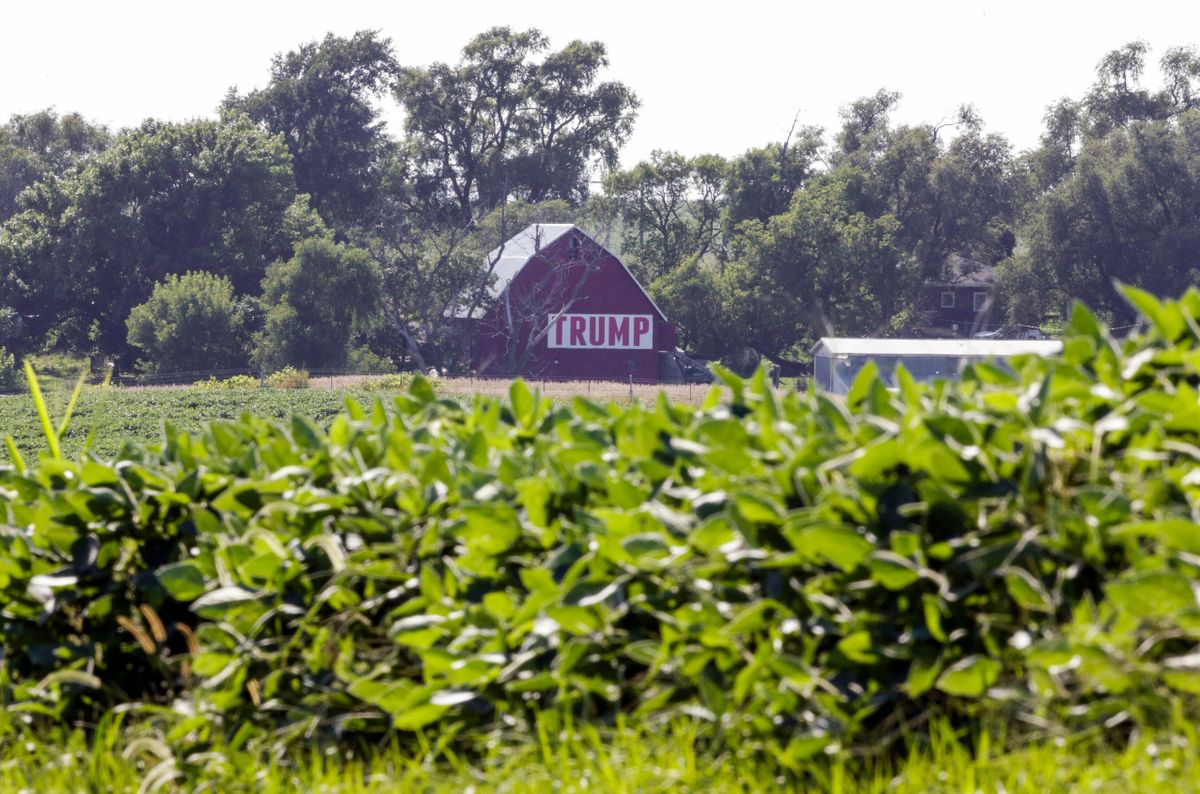
Trump’s Trade Fight with China Earns Limited Bipartisan Support
Unlike his recent threats to impose tariffs on Mexican goods, U.S. President Donald Trump’s steadfast determination to confront China’s trade practices has garnered bipartisan congressional support, albeit with reservations.
“We’ve got to do something about China, or America will not be a strong economic power 10 or 15 years from now,” Senate Democratic Minority Leader Chuck Schumer of New York said earlier this month.
“We won’t stand for our ideas and technologies being stolen, and we won’t stand for our people losing their jobs to unfair competition,” Senate Foreign Relations Committee Chairman James Risch, an Idaho Republican, said at a recent hearing.
“I know it may surprise some of my colleagues, but I agree with President Trump when it comes to recognizing the scope of [the] challenge that China presents to the United States,” the committee’s top Democrat, Sen. Bob Menendez of New Jersey, said.
 Trump's Trade Fight with China Earns Limited Bipartisan Support video player.
Trump's Trade Fight with China Earns Limited Bipartisan Support video player.A 'tariff man'
An economic nationalist long before he sought the White House, Trump seized on China as a trade villain during the 2016 campaign, regularly accusing Beijing of “ripping off” the United States.
As president, in his first address to Congress, Trump blamed China for the shuttering of tens of thousands of American factories, a theme that continues to this day.
“So I just announced we’ll increase tariffs on China,” the U.S. leader said last month at a political rally in the industrial state of Pennsylvania. “And we won’t back down until China stops cheating our workers and stealing our jobs.”
Trump is not the first president to decry Chinese trade practices. In 2011, then-President Barack Obama, a Democrat, accused Beijing of currency manipulation, saying, “We don’t want them [China] taking advantage of the United States or U.S. businesses.”

Democrats applaud
Unlike his predecessors, however, Trump has imposed sweeping punitive measures against China in the form of tariffs on Chinese goods, steps that some Democrats openly applauded as long overdue.
“If we don’t do something about China in the next five years, our economy will sink,” Schumer said. “I’ve believed it for a long time, long before Trump became president. I was critical of George Bush not doing enough, I was critical of Barack Obama not doing enough.”
“Chinese state-owned enterprises, such as those in steel and other sectors, receive extensive government subsidies that allow them to compete with no consideration of market forces,” Ohio Democratic Sen. Sherrod Brown said last week. “That makes it harder for U.S. companies and workers to compete, as our Ohio steel industry knows too well.”
Republican lawmakers, meanwhile, have had to adjust to an unapologetic Republican protectionist leading a political party that, for decades, has extolled the virtues of free trade and open markets.
“Frankly, too many members of my own party have been China doves for too long, focused primarily on the business relationship that we have with China,” Republican Sen. Tom Cotton of Arkansas said earlier this year. “I think that’s changed a lot in the last three years.”

Beyond tariffs
Trump’s actions haven’t been limited to tariffs. The administration has restricted Chinese telecommunications giants from the U.S. market, particularly in America’s nascent 5G infrastructure, citing security and privacy concerns.
While blocking Huawei has been overwhelmingly popular on Capitol Hill, the persistence of tariffs on Chinese goods, and Beijing’s retaliatory tariffs on American products, has taken a toll on key U.S. industries. Agriculture has been particularly hard hit, putting pressure on lawmakers representing farm-rich states, many of whom are Republicans.
“One-in-five jobs in Iowa is tied directly to trade,” Republican Sen. Joni Ernst said recently. “Right now the tariffs that we have on those products are overwhelming, and it is hurting our farm and agricultural income.”
“Erecting new market barriers with tariffs and quotas cannot be a long-term solution,” said Iowa’s other Republican senator, Chuck Grassley.

Picking the wrong fights
At the same time, Democrats have accused Trump of squandering leverage on China by picking trade fights with U.S allies.
“All the tariff fights with Canada, Mexico, Europe, Japan make no sense,” Schumer said. “We ought to all be united [internationally] and aimed at China, and I think we’d come to a very good solution quickly.”
Many Republicans want a U.S.-China trade deal that eliminates tariffs as soon as possible.
“Ultimately nobody wins a trade war unless there is an agreement at the end, after which tariffs go away,” Senate Majority Leader Mitch McConnell said. Hopefully these [Trump administration] tactics will lead us to that day.”
Democrats have said they fear Trump will sign off on a trade deal that reduces America’s trade imbalance with China in the short term but leaves thorny structural issues in the bilateral trading relationship unresolved.
“The president has made it a practice to get up in front of the television cameras, tout new trade deals, reap splashy headlines,” Oregon Democratic Sen. Ron Wyden said at a recent hearing. “But those announcements have been consistently hollow and the results underwhelming.”
For his part, Trump has signaled he remains committed to a trade strategy that relies heavily on tariffs. Tweeting earlier this week, Trump said tariffs are “a great negotiating tool” and “revenue producer.”
 Democrats Agree with Trump on This IssueNext PostWhy Iowa is at Center of 2020 Presidential Race
Democrats Agree with Trump on This IssueNext PostWhy Iowa is at Center of 2020 Presidential Race





